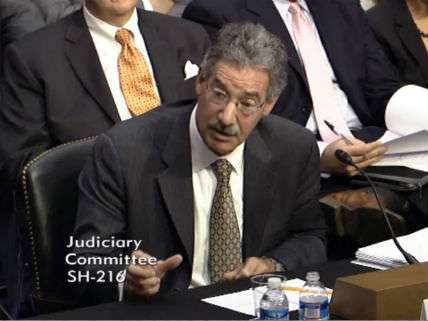DOJ Promises More Commutations but Despite 9,000 Petitions Needs Help Finding People to Free

Last month President Obama, who until that point had issued only one commutation in five years, shortened the sentences of eight drug offenders. Today, in a speech to the New York State Bar Association, Deputy Attorney General James Cole said more commutations are coming:
The President's grant of commutations for these 8 individuals is only a first step. There is more to be done, because there are others like the eight who were granted clemency. There are more low-level, non-violent drug offenders who remain in prison, and who would likely have received a substantially lower sentence if convicted of precisely the same offenses today. This is not fair, and it harms our criminal justice system.
To help correct this, we need to identify these individuals and get well-prepared petitions into the Department of Justice. It is the Department's goal to find additional candidates, who are similarly situated to the eight granted clemency last year, and recommend them to the President for clemency consideration.
Cole asked the lawyers in the audience to help find commutation candidates and prepare their petitions. The ideal candidate, he said, is "one who has a clean record in prison, does not present a threat to public safety, and who is facing a life or near-life sentence that is excessive under current law." The Justice Department is looking for "non-violent, low-level drug offenders who were not leaders of—nor had any significant ties to—large-scale organizations, gangs, or cartels." It is also interested in "petitions from first-time offenders or offenders without an extensive criminal history."
Cole's talk of more commutations is surely welcome as a sign that Obama wants to improve his abysmal clemency record. But it is also rather puzzling. Obama has received nearly 9,000 commutation petitions since taking office, Are we to believe that so far just nine of them (0.1 percent) have proven to have merit? Why is Cole scrounging around for applicants, asking his friends in the New York State Bar Association to give him a hand? Why not dig into the enormous pile of existing petitions to find some worthy candidates? Cole's appeal for "effective and appropriate" petitions that "provide a focused presentation of the information the Department and the President need to consider" sounds like an admission that the government cannot be bothered to read the petitions it has already received.
About 1,500 of the clemency petitions have been officially denied, while 1,300 or so have been "closed without presidential action." How serious was the review that preceded those decisions? And what exactly is happening to the 6,000 or so remaining petitions? Now that the president has suddenly taken an interest in exercising his clemency powers, are government lawyers finally getting around to looking at those files, or are all those prisoners out of luck unless they can get help from one of Cole's volunteers to write a fresh petition that will receive attention because it does not have the same disgusting odor of neglect and indifference?
Julie Stewart, president of Families Against Mandatory Minimums, which probably could help Cole identify people who do not belong in prison, comments:
This speech is evidence of just how derelict the clemency process has become in America. Once upon a time, Presidents granted hundreds of commutations, but today they're about as common as winning the lottery. It's encouraging to see the President wiping the dust off of this tool and targeting the most unjust of our many unjust sentencing laws: life without parole for a drug offense. There are plenty of nonviolent, rehabilitated people who don't deserve to die in prison. But we need more than commutations. Congress and this administration should end mandatory life without parole sentences for nonviolent drug crimes.
More on life sentences for nonviolent crimes here.


Show Comments (9)